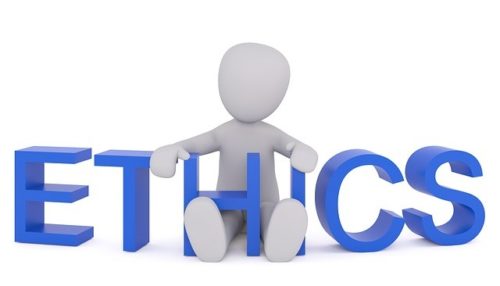- Mental Health Statistics
- Symptoms of Depression
- Stress Impact and Factors
- How to Distress
- Solitude and Loneliness
- Dealing with Anxiety
- Dealing with Fear
- Ethically Challenges
- Warning Signs
- Challenges with Seeking Help
- How to Seek Help
-
Coronavirus and Your Mental Health In this timely and compelling CLE program, Attorney, Brian Quinn presents, “Coronavirus and Your Mental Health: A Lawyer’s Guide to Coping with Isolation, Anxiety, and Fear in Uncertain Times”. Mr. Quinn begins the program with a discussion on mental health statistics and symptoms of depression and stress factors. The program continues with an overview of dealing with solitude, anxiety, and fear. Mr. Quinn then explains ethically challenges and some warning signs. The program concludes with challenges of seeking help and how lawyers can seek help. This program is for all attorneys. Agenda
-
Covid-19: Business and Asset Protection A coronavirus-induced recession is no longer avoidable—it is happening right now. Each recession brings with it declining sales, job losses, falling rents, and defaults on loans and leases. When a crisis hits, getting a head start matters and those who have prepared will fare better than those who have not. This engaging presentation on protecting assets from plaintiffs, lenders, creditors and the government will cover lessons learned from the financial crisis of 2008 that we can apply to 2020, what businesses can do now to transition into the recession, and how companies and individuals can protect their assets from litigation and creditor threats. The instructor will share real-life stories and anecdotes, and will present a very practical approach to protecting assets. The discussion will also cover asset protection planning in a troubled economy, focusing on protecting assets from lenders and landlords and how to plan after a lawsuit, a default or an accident. Agenda:
- Debt Collection
- Fraudulent Transfers
- Entity Planning
- Choice of Entity
- Planning with Trusts
- Foregin Trusts
- Retirement Plans
- Examples
-
Criminal Mitigation: Pre-Plea and Pre-Sentencing Strategies
Course Description
In this timely and compelling CLE course, attorney and forensic psychologist Mark Silver, presents “Criminal Mitigation: Pre-Plea and Pre-Sentencing Strategies”. Mr. Silver starts the program with an overview of various humanizing processes that a criminal law attorney can utilize to better advocate for their client. Mr. Silver then discusses how the use of psychological analysis can have a more positive impact on a client and increase their chances of success. This program is a must for any attorney. Learning Objectives/Agenda:- Summarize the definition and applicability of mitigation to a defendant's case
- Identify the multi-purpose uses of mitigation in the course of defense
- Examine how criminal mitigation can best assist one's client
- Describe which clients most benefit from criminal mitigation and why
-
Cultural Competence: Recognizing Implicit Bias Successful legal practice requires positive working relationships within an environment of cooperation and respect. Professionalism prompts productivity, which creates profit. This program seeks to enhance your ability to achieve and maintain a thriving, productive, inclusive workplace of equal opportunity through a lively discussion of how to detect and address implicit bias, increase diversity, and enhance cultural competence. This program will focus on how to recognize implicit bias through some of the more common perceptible red flags flown by employees harboring biased views or discriminatory intent. By discussing what to look for, and where and when to look, this program will enhance the ability of managers and supervisors to spot problem employees sooner rather than later. Focusing on education and inclusion will reduce workplace harassment, bullying, and discrimination, boost morale, and help employers avoid legal liability. Addressing issues of implicit bias will help employers to maintain a workplace that is both culturally diverse and culturally sensitive, to promote a sense of inclusion and comfort for all employees.
-
Cyber Security for Lawyers and Law Firms In this timely and compelling CLE program, attorney, Russell Jackman presents: “Cyber Security for Lawyers and Law Firms.” Mr. Jackman introduces the program going over major concerns with cyber security and explains what malware and cyber attacks are. The program continues with a discussion of who the attackers are and how they attack a law firm or lawyer's computer. The program gives an in-depth explanation of how to protect yourself and your computer. This program is for any attorney with a computer. AGENDA
- Concerns with Cyber Security
- Malware and Cyber Attacks
- Who is attacking
- Ransomware
- Hijackers and Adware
- Virus, bugs, and worms
- Anti-Virus Software
- Firewalls
-
Dealing with the Disruptive Practitioner in a Legally Compliant Manner
-
Direct Examination: Making the Witness Look Good
-
Domestic violence as intimate terrorism: mitigation for criminal defense lawyers
Abuse of domestic partners in the form of physical, psychological, financial, sexual, and related forms of abuse tends to be systemic in nature causing complex trauma to the victim who suffers overwhelming psychological and emotional stress leading to various psychiatric issues forcing the victim to contend in unhealthy ways while experiencing deep feelings of helplessness, hopeless despair, and pain. This program will provide a detailed understanding of the victim’s experiences and challenges for the criminal defense lawyer in such cases.
Agenda
- To understand the types of abuses that victims suffer.
- To understand the concept of complex trauma and how it can be applied to victims of domestic abuse to understand their trauma for defense purposes.
- To understand the major psychiatric diagnoses associated with victims of domestic violence.
-
Attorney Licensure and the Impaired Professional
-
Effective and Ethical Use of Experts One of the most important issues lawyers face in preparing for trials and other hearings is whether or not to retain an expert. This program will cover the range of topics and issues that would benefit from expert testimony, including the relevant legal issues and arguments, as well as how to prepare your expert to take the stand. It will also cover what should factor into the decision as to whether to retain an expert for consultation purposes only, or also to testify in court. This program will cover applicable ethics rules and standards that apply to using expert witnesses. It will include the ABA Model Rules, Ethics Opinions, the ABA Criminal Justice Section Standards, and applicable case law. Issues range from compensation, to independence of opinion, to potential conflict of interest, to manner of testifying. This program will also cover preparing an expert to testify, including how to tailor the method and manner of testimony to the facts of your case. Because jurors do not appreciate (or understand) an expert who speaks in industry-specific jargon from an ivory tower, this program will cover how to humanize your expert. In covering this important interpersonal angle, it will present discuss the results of research studies investigating juror perception of expert witnesses. Agenda:
- Introduction to the importance of considering ethical expert testimony in legal proceedings
- Overview of ethical legal issues and arguments that benefit from expert testimony
- Discussion of ethical factors to consider when deciding whether to retain an expert for consultation or testimony
- Explanation of applicable ethics rules and standards for using expert witnesses, including ABA Model Rules, Ethics Opinions, Criminal Justice Section Standards, and relevant case law
- Discussion of compensation, independence of opinion, potential conflicts of interest, and manner of testifying in ethical manner
- Ethical Techniques for preparing an expert to testify, including tailoring testimony to the facts of the case
- Ethical Strategies for humanizing an expert and avoiding industry-specific jargon
- Ethical Presentation of research studies on juror perception of expert witnesses
-
Effective Legal Representation In Today's Federal Social Security Disability Arena In this timely and compelling CLE program, attorney, Scott Daniels teaches Federal Social Security Disability Representation Mr. Daniels begins the program with an overview of applicable laws, eligibility, and standard for disability claims. Attorney Daniels then proceeds to cover various types of disability programs. He also discusses the five steps in evaluating a disability claim. Mr. Daniels concludes the program with case examples and an overview of the Federal Disability Claim Process and who bears the burden of proof. This program is a must watch for any attorney who wants to learn more about Federal Disability Claims. Agenda
- Applicable Social Security Laws
- Types of Disability Programs
- Evaluation Process
- Federal Disability Process
- Case Examples
-
Elimination of Bias in the Legal Profession: Both Personally and Professionally This program is designed to provide a comprehensive understanding of laws regarding bias and discrimination, and how they apply specifically within the legal profession, but overlap with a lawyer's personal life. Participants will learn about the latest developments in state and federal laws governing bias and discrimination, and will be exposed to relevant practical examples of bias and discrimination under state and federal law. Through the program, participants will develop the ability to identify not just overt gender bias, but also subtle gender bias, stereotyping, and prejudices. The ethical rules that apply to exhibiting bias and discrimination in a work setting, as well as dealing with clients and potential clients will also be covered. The agenda will include strategies to eliminate and prevent bias within the workplace and a review of tips for creating an inclusive culture. Agenda:
- Introduction: Welcome and overview of the seminar's objectives and key topics to be covered.
- Developments in State and Federal Laws: A review of recent developments and updates in state and federal laws related to bias and discrimination and their implications for the legal profession.
- Practical Examples of Bias and Discrimination: Discussion of real-life scenarios and case studies that illustrate bias and discrimination within the legal profession.
- Identifying and Addressing Bias: Techniques for identifying and addressing overt and subtle bias, stereotyping, and prejudices in the workplace and beyond.
- Ethical Rules and Responsibilities: An overview of the ethical rules and responsibilities that apply to exhibiting bias and discrimination in the legal profession, including how to interact with clients and potential clients.
- Strategies for Eliminating and Preventing Bias: Discussion of strategies and best practices for eliminating and preventing bias within the workplace, including tips for creating an inclusive culture.
- Summary of key takeaways and next steps for attendees to continue learning and implementing the information covered in the seminar.
-
Entity Formation 101 In this timely, and compelling, CLE program attorney, Todd Kulkin, presents “Entity Formation 101”. The program begins with an overview of the entity formation process and the three primary questions in entity formation. The program continues with an in-depth look at the type of entities, corporate veil issues, and benefit corporations. Mr. Kulkin then provides an explanation of S Coprs, C Corps, and Judicial considerations. The program concludes with a corporate governance discussion. This program is for any attorney who’s in business or has clients in business or wants to be. Agenda:
- The Entity Formation Process
- The Three Primary Questions in Entity Formation.
- The Types of Entities
- Corporate Veil issues
- Benefit Corporations
- Jurisdictional Considerations
- S Corp vs C Corp
- Corporate Governance
-
Ethical and Practical Considerations in Engaging Local Co-Counsel In this timely and compelling CLE program attorney, Theodore H. Cominos, presents Ethical and Practical Considerations of Engaging Local Co-Counsel. Mr. Cominos introduces the program with an overview of the need for local co-counsels. Attorney Cominos continues the program with an in depth explanation of ethical and practical considerations. The program continues with a discussion on due diligence, client consent, and engagement terms. The program concludes with a look at liability considerations and what goes into monitoring the relationship between co-counsels. This program is a must for any attorney who engages with local co-counsel. Agenda: Need for Local / Co Counsel Ethical Considerations Practical Considerations Due Diligence Client Consent Engagement Terms Liability Considerations Monitoring the Relationship
-
Pro Bono Representation: Help the Profession Help Others
-
Ethics Compliance for Solo Practitioners In this timely and compelling CLE program Attorney, Todd Kulkin, presents Ethics Compliance for Solo Practitioners. Mr. Kulkin starts the program with a discussion on Confidentiality, Conflict Of Interest, and Solicitation & Networking within the ABA model rules. The program continues with an overview of No-Contact Rule, Referral Fees, and Communicating With Unrepresented Persons. Additionally Mr. Kulkin will cover duties to prospective clients. The program concludes with an explanation if a lawyer should take equity. This program is a must for any attorney. AGENDA:
- Confidentiality
- Conflict Of Interest
- Solicitation & Networking
- No-Contact Rule
- Referral Fees
- Communicating With
- Unrepresented Persons Attorney as third-party neutral
- Trust account issues
- Non-law practice activities
- Duties to Prospective Clients
-
Ethics in Business Law In this timely and compelling CLE program Attorney, Todd Kulkin, presents Ethics in Business. Mr. Kulkin starts the program with a discussion on Confidentiality, Conflict Of Interest, and Solicitation & Networking within the ABA model rules. The program continues with an overview of No-Contact Rule, Referral Fees, and Communicating With Unrepresented Persons. Additionally Mr. Kulkin will cover Attorney as third-party neutral, Trust account issues, and Non-law practice activities, The program concludes with an explanation if a lawyer should take equity. This program is a must for any attorney. Agenda:
- Confidentiality
- Conflict Of Interest
- Solicitation & Networking
- No-Contact Rule
- Referral Fees
- Communicating With Unrepresented Persons
- Attorney as third-party neutral
- Trust account issues
- Non-law practice activities
- Should You Take Equity?
-
Fair Debt Collection Practices Act
Fair Debt Collection Practices Act
Faculty: Boyd W. GentryThe Fair Debt Collection Practices Act (FDCPA) regulates the behavior of debt collectors who attempt to collect personal, family, or household debts on behalf of creditors. Compliance with the FDCPA is crucial to avoid legal repercussions as it provides strict guidelines on acceptable debt collection practices, prohibits abusive, false or misleading behavior, and imposes civil liability for violations.
Agenda
Overview of the FDCPA
-
Briefly introduce the FDCPA and its purpose
-
Provide a high-level overview of the topics to be covered in the session
Why comply with the FDCPA?
-
Discuss the consequences of non-compliance with the FDCPA
-
Explain the benefits of compliance for debt collectors
Who is a “debt collector” regulated by the FDCPA?
-
Define the term “debt collector” under the FDCPA
-
Explain who is regulated by the FDCPA and who is not
To what “debts” does the FDCPA apply?
-
Discuss the types of debts that are covered by the FDCPA
-
Explain the types of debts that are not covered by the FDCPA
Finding the Debtor and what can and must I say?
-
Discuss the rules and limitations on contacting debtors
-
Explain what information debt collectors must provide to debtors when contacting them
Communicating with Third Parties
-
Discuss the limitations on contacting third parties to obtain information about debtors
-
Explain the types of information that can and cannot be disclosed to third parties
Validation of debts [15 USC 1692g]
-
Discuss the requirements for debt validation under the FDCPA
-
Explain the timeline for debt validation and what information must be provided to debtors
Cease Communication Requests
-
Explain the rules for honoring requests to cease communication from debtors
-
Discuss the consequences of failing to honor a cease communication request
Prohibited debt collection practices
-
Discuss the types of debt collection practices that are prohibited under the FDCPA, including harassment or abuse, false or misleading representations, and unfair practices
-
Explain the consequences of engaging in prohibited debt collection practices
Legal actions and civil liability
-
Discuss the legal actions that debt collectors can take under the FDCPA to collect debts
-
Explain the civil liability that debt collectors can face for violating the FDCPA
-





